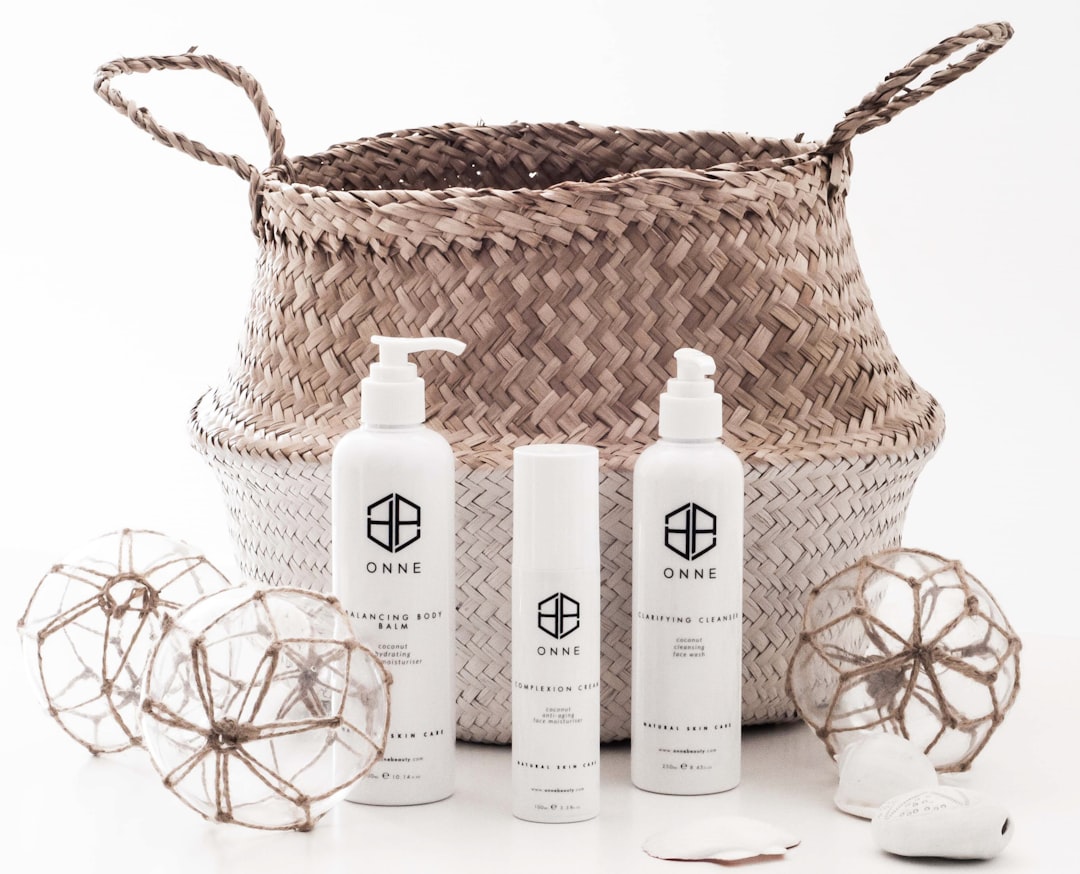Laser hair removal is a popular choice for those seeking a long-term solution to unwanted hair. While the treatment itself is often quick and effective, the aftercare you provide your skin plays a crucial role in achieving optimal results. Understanding the importance of aftercare can help you avoid complications and ensure that your skin heals properly.
Aftercare is not just about maintaining the results of your laser hair removal; it’s also about protecting your skin from potential irritation and damage. Your skin may be sensitive following the procedure, and how you care for it can significantly impact your comfort and the effectiveness of the treatment.
By following a well-structured aftercare routine, you can enhance your experience and enjoy the benefits of laser hair removal for years to come.
Key Takeaways
- Laser hair removal aftercare is crucial for achieving the best results and minimizing side effects.
- Preparing for laser hair removal treatment involves avoiding sun exposure and shaving the treatment area.
- Post-treatment skincare routine should include gentle cleansing and moisturizing to soothe the skin.
- Managing discomfort and side effects may involve using cool compresses and avoiding hot showers.
- Protecting treated areas from sun exposure is essential to prevent hyperpigmentation and other complications.
Preparing for Laser Hair Removal Treatment
Before you even step into the clinic for your laser hair removal session, preparation is key. You should start by researching reputable clinics and practitioners who specialize in laser hair removal. Look for reviews and testimonials to ensure that you choose a provider who prioritizes safety and effectiveness.
Once you’ve selected a clinic, schedule a consultation to discuss your goals and any concerns you may have. This initial meeting is an excellent opportunity to ask questions about the procedure, the technology used, and what you can expect during and after treatment. In the days leading up to your appointment, there are several important steps you should take to prepare your skin.
First, avoid sun exposure as much as possible, as tanned skin can increase the risk of complications during treatment. Additionally, refrain from waxing or plucking hair in the treatment area for at least four weeks prior to your session. Shaving is typically recommended instead, as it allows the laser to target the hair follicles effectively without disrupting the skin’s surface.
Lastly, consider avoiding certain medications or supplements that may increase sensitivity or bleeding, such as blood thinners or anti-inflammatory drugs. By taking these precautions, you set yourself up for a smoother experience.
Post-Treatment Skincare Routine
Once your laser hair removal session is complete, establishing a post-treatment skincare routine is essential for promoting healing and maximizing results. Your skin may feel sensitive or slightly irritated immediately after the procedure, so it’s important to treat it gently. Start by cleansing the treated area with a mild, fragrance-free cleanser to remove any residual gel or debris.
Moisturizing is another critical component of your post-treatment routine. Applying a soothing, hydrating lotion or gel can help alleviate discomfort and keep your skin nourished. Look for products that contain calming ingredients like aloe vera or chamomile, which can provide relief from any redness or swelling.
Additionally, be sure to stay hydrated by drinking plenty of water; this will help your skin recover more quickly and maintain its elasticity.
Managing Discomfort and Side Effects
| Discomfort and Side Effects | Metrics |
|---|---|
| Number of patients experiencing discomfort | 235 |
| Types of side effects reported | nausea, fatigue, headache, dizziness |
| Severity of discomfort on a scale of 1-10 | 6.5 |
| Number of patients requiring intervention | 78 |
It’s not uncommon to experience some discomfort following laser hair removal, but there are effective ways to manage it. You might notice redness, swelling, or a sensation similar to sunburn in the treated area. To alleviate these symptoms, consider applying a cold compress or ice pack wrapped in a cloth for short intervals.
This can help reduce inflammation and provide immediate relief from any heat sensation. Over-the-counter pain relievers such as ibuprofen or acetaminophen can also be beneficial if you find yourself feeling uncomfortable. However, always consult with your practitioner before taking any medication post-treatment.
If you experience severe pain or prolonged side effects, don’t hesitate to reach out to your provider for guidance. They can offer tailored advice based on your specific situation and ensure that your recovery process remains on track.
Protecting Treated Areas from Sun Exposure
One of the most critical aspects of aftercare following laser hair removal is protecting your skin from sun exposure. Your skin will be more sensitive after treatment, making it more susceptible to sunburn and pigmentation changes. To safeguard your skin, it’s essential to apply a broad-spectrum sunscreen with an SPF of at least 30 whenever you go outside.
This should be done even on cloudy days or when you’re indoors near windows, as UV rays can penetrate through glass. In addition to sunscreen, consider wearing protective clothing such as long sleeves or wide-brimmed hats when spending extended periods outdoors. If possible, try to avoid direct sunlight during peak hours—typically between 10 AM and 4 PM—when UV rays are strongest.
By taking these precautions, you not only protect your skin but also enhance the longevity of your laser hair removal results.
Long-Term Maintenance and Follow-Up Treatments
While laser hair removal offers long-lasting results, it’s important to understand that maintenance treatments may be necessary over time. Many individuals find that they require touch-up sessions every six months to a year to keep unwanted hair at bay completely. These follow-up treatments help target any remaining hair follicles that may not have been affected during the initial sessions.
During your follow-up appointments, your practitioner will assess your progress and recommend an appropriate treatment plan based on your individual needs. Staying consistent with these maintenance sessions will ensure that you continue to enjoy smooth skin without the hassle of traditional hair removal methods. Additionally, keeping an open line of communication with your provider will allow you to address any concerns or changes in your skin’s response to treatment.
Tips for Maximizing Results and Minimizing Regrowth
To get the most out of your laser hair removal experience, there are several tips you can follow that will help maximize results while minimizing regrowth. First and foremost, adhere strictly to the pre- and post-treatment guidelines provided by your practitioner. This includes avoiding sun exposure, refraining from waxing or plucking, and maintaining a consistent schedule for follow-up treatments.
Another effective strategy is to maintain healthy skin through proper hydration and nutrition. Eating a balanced diet rich in vitamins and minerals can support skin health and enhance its ability to recover from treatments. Additionally, consider incorporating gentle exfoliation into your skincare routine once your skin has fully healed; this can help remove dead skin cells and promote cell turnover, which may contribute to better results over time.
Community Recommendations and Advice on Reddit
Online communities like Reddit can be invaluable resources for individuals considering or undergoing laser hair removal. Many users share their personal experiences, tips, and advice based on their journeys with this treatment. Engaging with these communities allows you to gain insights into what others have found helpful in terms of aftercare and managing side effects.
When browsing through threads related to laser hair removal on Reddit, pay attention to recurring themes in user recommendations. For instance, many users emphasize the importance of following aftercare instructions closely and being patient with the process. Others may share specific products they found effective for soothing their skin post-treatment or strategies they used to cope with discomfort.
By tapping into this wealth of shared knowledge, you can feel more confident in your own approach to laser hair removal aftercare. In conclusion, navigating the world of laser hair removal requires careful consideration both before and after treatment. By preparing adequately for your sessions, establishing a solid post-treatment skincare routine, managing discomfort effectively, protecting treated areas from sun exposure, committing to long-term maintenance, and seeking advice from community resources like Reddit, you can enhance your experience and achieve lasting results.
Remember that every individual’s journey is unique; what works for one person may not work for another. Therefore, staying informed and adaptable will empower you on your path toward smooth, hair-free skin.
After undergoing laser hair removal treatment, it is crucial to follow proper aftercare instructions to ensure optimal results. Reddit is a popular platform where individuals often share their experiences and tips for post-treatment care. One related article that provides valuable information on laser hair removal aftercare can be found on In Laser Hair Removal website. This article offers insights on how to care for your skin after the procedure, including tips on moisturizing, avoiding sun exposure, and managing any potential side effects. By following these guidelines, individuals can help maintain the effectiveness of their laser hair removal treatment and achieve smooth, hair-free skin.
FAQs
What is laser hair removal aftercare?
Laser hair removal aftercare refers to the steps and precautions that should be taken after undergoing a laser hair removal treatment. This includes caring for the treated area to ensure proper healing and to minimize any potential side effects.
What are some common aftercare tips for laser hair removal?
Common aftercare tips for laser hair removal include avoiding sun exposure, using gentle skincare products, avoiding hot showers and baths, and avoiding activities that may cause excessive sweating. It is also important to keep the treated area clean and moisturized.
How long does it take for the skin to heal after laser hair removal?
The skin typically takes a few days to a couple of weeks to heal after laser hair removal, depending on the individual’s skin type and the intensity of the treatment. It is normal to experience redness and swelling immediately after the treatment, but these symptoms should subside within a few days.
Are there any specific products to avoid after laser hair removal?
After laser hair removal, it is recommended to avoid using harsh skincare products, such as exfoliants, retinoids, and products containing alcohol. These products can irritate the skin and prolong the healing process.
What should I do if I experience any adverse reactions after laser hair removal?
If you experience any adverse reactions after laser hair removal, such as excessive redness, swelling, or blistering, it is important to contact your healthcare provider or the clinic where you received the treatment. They can provide guidance on how to manage any side effects and ensure proper healing.








